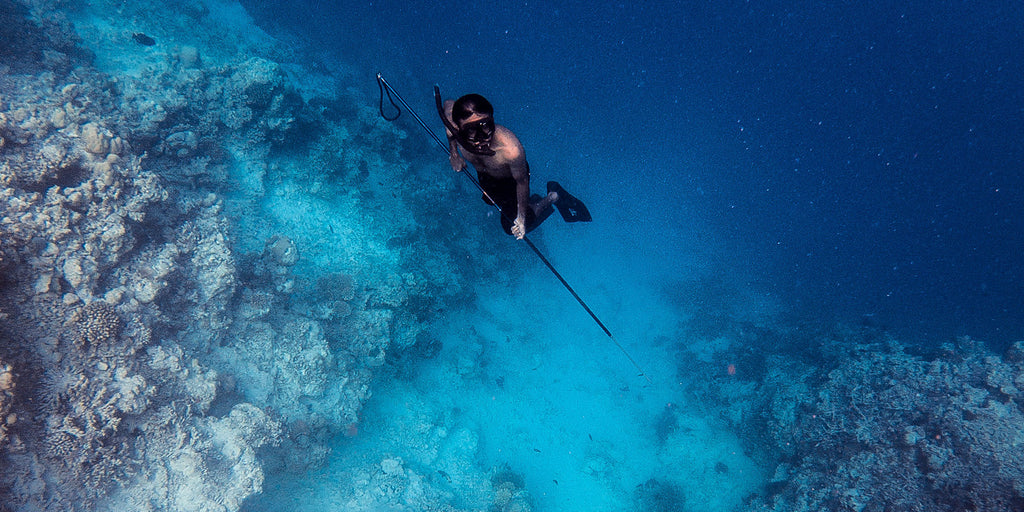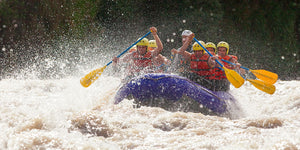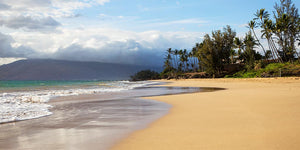10 Things You Should Know Before Go Spearfishing

If you're interested in spearfishing and not sure where to start, you're not alone. Resources on spearfishing can be scarce for beginners and the recommendations for gear can seem pretty steep. Luckily, starting out in the sport doesn't have to be a huge task. The gear you'll need is simple enough that you don't need extensive training, and it's perfect for learn-as-you-go types. Getting ready to try it out for the first time? Here are ten basic tips to get you started in spearfishing.
Get to Know the Regulations
Before you start to plan when and where you're going spearfishing, check out your local regulations for the sport. For the safety of other swimmers, it's likely that there are restrictions on where you can dive. Plus, you'll need to get a fishing license if you're in the United States and learn about the regulations in regards to species, size and quantity of fish you're allowed to take.
Get the Right Gear
Once you know what you’re allowed to do, you can take a trip to your local dive shop and get the gear you need. To start out, you’ll need a wetsuit, spear, spear tip, stringer, dive knife, mask, snorkel, gloves and fins. This may seem like a hefty list, but keep in mind that most of it is fairly inexpensive and can be rented if you’re not yet ready to make a big investment. The dive shop will be able to talk you through any questions you have about the specifics of your gear.
Ask Around About Location
While you're at the dive shop, take advantage of their knowledge and ask for recommendations for dive locations. If you're just starting out, you'll want to avoid spots with rough waters, strong currents or other unsafe features. Start with areas that have calm waters and minimal obstacles.
Stick to the Buddy System
Freediving in itself can be a dangerous activity — you're spending extended periods of time underwater and putting your body through an exhausting process. In addition to that, you're also using dangerous weapons, so having someone nearby is vital to ensuring your safety. We recommend taking shifts underwater: whenever one diver is under, the other is at the surface. Alternating this way gives your body a break and makes sure there's always someone nearby in case of an emergency.
Learn to Equalize
One of the most important things you can learn while diving is how to equalize. To do this, plug your nose and blow out once you start to feel the pressure in your ears. This will cause the pressure to dissipate and allow you to go deeper underwater.
Use a Dive Knife
A dive knife isn’t just for securing your catch or gutting the fish; it’s also a major safety component. In the case that you become entangled in a net, rope or bed of kelp, you can use your knife to cut yourself free and avoid an underwater blackout. Make sure you have one on you at all times.
Watch Your Hands
The last thing you want on your first spearfishing venture is to head to the hospital with an eel bite. While you’re diving, be aware of your body and don’t put your hands near any dark holes. Many first-timers make the mistake of bracing themselves against a reef without paying attention to hidden enclaves, and an eel-bite is a nasty price to pay for that mistake.
Take It Slow
If you get too excited and try to chase after the fish, you're never going to catch anything. The best way to maximize your time underwater is to take it slow, move smoothly and cause the least amount of disturbance to the environment as possible.
Make Yourself Small
Those who are most successful at spearfishing are not successful because they’re fast. They’re good at what they do because they’re stealthy. Get close to fish by hiding behind underwater features and approaching them in the way that is least intimidating. You'll want to get as close as possible before making your shot.
Enjoy the Experience
It’s easy to get discouraged the first time you go out. Know that it’s unlikely you’ll catch anything the first time or even the first few times, so take advantage of the time you have in the water to learn and try new techniques. It may take some time to figure out what works best, so enjoy the process.
If, after spearfishing for the first time, you decide you want to continue learning about the sport, consider purchasing your own gear or even upgrading to a speargun. Different types of gear are better for different locations or species, so do your research before adding a new piece to your collection. Most importantly, stick with what works for you and will make your overall experience more enjoyable.
Credit: Photo by Mohamed Ahzam on Unsplash
- Watersports Staff






Comments 0